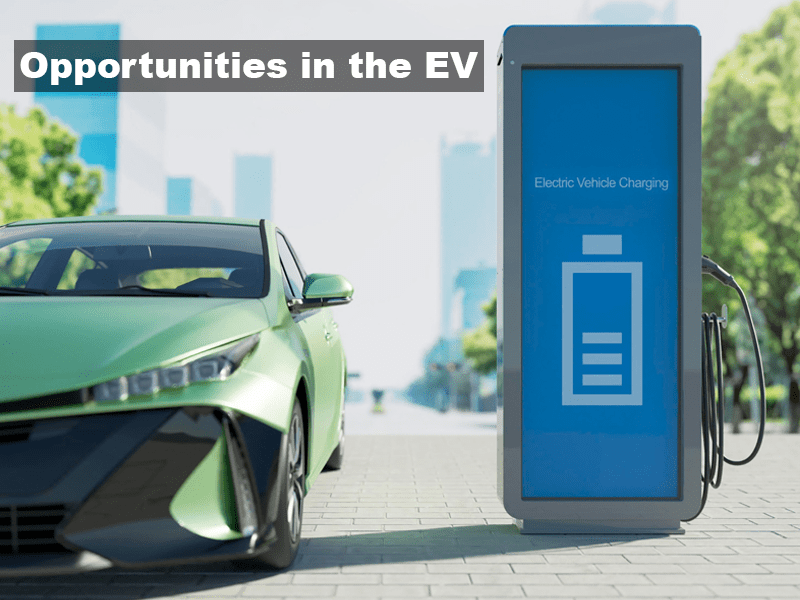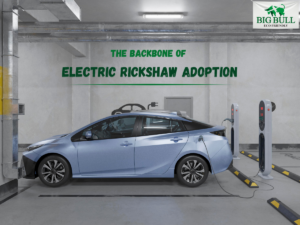In a world where climate change is a growing concern, the wheels of innovation are turning towards a greener and more sustainable mode of transportation. Electric vehicles (EVs) have emerged as a sustainable change that promises reduced emissions, cleaner air, and a step closer to a future powered by renewable energy. In this context, one question looms large over India: Is the country ready to embrace the electric revolution on its roads?
Table of Contents
ToggleHow is India Ready for Electric Vehicles– A Brief Introduction
In a world where climate change is a growing concern, the wheels of innovation are turning towards a greener and more sustainable mode of transportation. Electric vehicles (EVs) have emerged as a sustainable change that promises reduced emissions, cleaner air, and a step closer to a future powered by renewable energy. In this context, one question looms large over India: Is the country ready to embrace the electric revolution on its roads?
India, known for its vibrant streets crowded with a medley of vehicles, finds itself at a crossroads. The electric motor is a powerful opponent to the internal combustion engine, which has long served as the foundation of our transportation system. Assessing India’s readiness for electric vehicles involves assessing the adoption rates and cost of electric cars in India and the performance of electric vehicles on Indian roads.
In this blog, we embark on an enlightening expedition into the realm of electric vehicles in India. We will delve into the global stage to grasp the magnitude of this shift, analyze India’s progress so far, tackle the electrifying challenges that stand in our way, and explore the opportunities that can accelerate our transition. So, fasten your seatbelts as we delve into the electric potential of India’s future on wheels.
Is India Ready for Electric Vehicles– The Current Status of EV Adoption in India

With the growing consumer awareness of EVs, they have gained significant popularity in India, emerging as a convenient alternative to traditional internal combustion engine (ICE) vehicles. This surge can be attributed to India’s growing concern for reducing carbon emissions and addressing climate change. Additionally, the government’s policies, the expansion of charging infrastructure, advancements in battery technology, and the emergence of innovative automakers have made EVs more accessible to Indian consumers. Consequently, there has been a substantial increase in EV sales in the country during the fiscal year 2023.
According to data from Vahan, the cumulative sales of EVs in India’s electric vehicle market as of March 31, 2023, reached an impressive 1,171,944 units. Notably, two-wheelers dominated this market, accounting for a remarkable 720,000 units. This underscores the rapid growth of the EV market in India, with expectations of further expansion in the near future.
Projections from a report by Mordor Intelligence indicate that the Indian EV market is definitely moving toward continued growth. It is anticipated to increase from $5.61 billion in 2023 to a substantial $37.68 billion by 2028, showcasing a remarkable compound annual growth rate (CAGR) of 46.38%. This swift adoption of EVs in India can be attributed to various factors, including cost considerations and financial incentives offered by the government.
India Ready for Electric Vehicles– Analyzing the Factors, Challenges, and Opportunities
Now, let us delve into the key factors driving India towards EV adoption and opportunities and challenges in context to the question—is India ready for electric vehicles?
Key Factors:
- Environmental Concerns: India’s growing concern about air pollution and climate change is a significant driver for EV adoption. Transitioning to electric vehicles can reduce carbon emissions and contribute to a cleaner environment.
- Government Initiatives: The government policies for electric vehicles in India and incentives, such as the Faster Adoption and Manufacturing of Hybrid and Electric Vehicles (FAME) scheme, are encouraging EV manufacturing and adoption. Subsidies and tax benefits make EVs more affordable.
- Charging Infrastructure for EVs in India: The expansion of charging infrastructure is crucial for EV adoption. The government and private sector are investing in charging stations to make EV charging convenient and accessible.
- Technological Advancements: Advances in battery technology are making EVs more efficient and affordable. Breakthroughs in battery chemistry and production can further drive adoption.
- Consumer Awareness: Educating consumers about the benefits of EVs, including lower operating costs and reduced maintenance, can boost adoption rates.

Challenges
Charging Infrastructure Gaps: While progress is being made, the availability of charging stations remains uneven, with rural areas facing more significant challenges. Addressing this gap is essential for EV adoption.
- Affordability: EVs often have a higher upfront cost compared to traditional vehicles. Making EVs more affordable through subsidies and incentives is crucial.
- Range Anxiety: Concerns about the limited range of EVs and the availability of charging infrastructure can deter potential buyers. Improving battery technology and expanding charging networks can alleviate this concern.
- Supply Chain Constraints: EV manufacturing relies on a complex supply chain, which may face disruptions. Ensuring a stable supply chain for EV components is vital.

Opportunities
Job Creation: The shift to EVs can create job opportunities, particularly in manufacturing and maintenance, which will help contribute to economic growth.
- Reduced Operating Costs: EVs have lower operating costs compared to gasoline vehicles due to cheaper electricity and fewer maintenance requirements. This can attract cost-conscious consumers.
- Reduced Oil Dependency: As India imports a significant portion of its oil, a shift to EVs can reduce the country’s oil dependency and enhance energy security.
- Innovation and Entrepreneurship: The EV sector offers opportunities for innovation and entrepreneurship that can lead to the emergence of new-age automakers and startups.
- Global Leadership: India has the potential to become a global leader in EV manufacturing and technology by capitalizing on its vast market and skilled workforce.
Final Thoughts
While India has made strides in promoting electric vehicles, several challenges need to be addressed to ensure a smooth transition. The readiness for EVs depends on a combination of factors, including infrastructure development, affordability, technological advancements, government policies, and public awareness. So, is India ready for electric vehicles? India has the potential to become a leader in the EV market. However, concerted efforts are needed from various stakeholders to overcome the obstacles and make EVs a viable and sustainable mode of transportation for all.
To inquire about buying electric scooters, you can explore the websites of electric scooter manufacturers or connect with the best electric scooter dealers in India. Choosing EVs in India is not just a smart move; it’s a sustainable choice that benefits both you and the environment.






